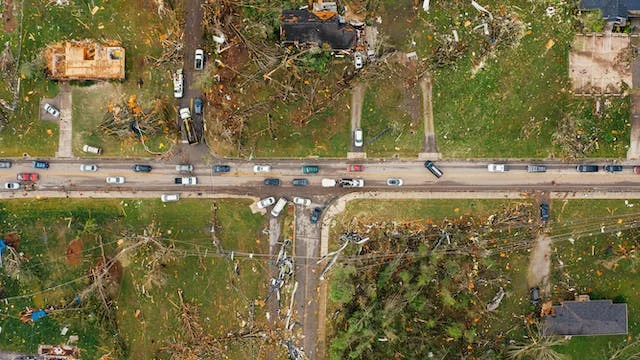
Car accidents can negatively impact your life but they can also have a large impact on the environment. Car accidents cause road damage. Plus, the emissions and gas they leak negatively impact the earth. If you’ve been affected by a motor vehicle accident, speak with a car accident attorney about your options.
Older Vehicles and Their Environmental Impact
The average vehicle is more than ten years old. Although vehicle technologies have drastically improved, energy efficiency features have only been widely adopted in newer models. Since there are more than 250 million cars and trucks on the road, that means many of them are spewing harmful emissions into the environment.
Older vehicles use more gas and when that gas transforms into carbon dioxide emission, this wreaks havoc on the atmosphere. When many older vehicles emit carbon into the sky, the atmosphere fills up with smog, and smog pollution can cause a variety of health, economic, and environmental issues. Traffic accidents also have a negative impact because they often bring traffic to a standstill. Idling vehicles and gas spills can make matters even worse.
Environmental Factors
Recent findings have highlighted how cars can negatively impact the environment directly and indirectly. Car crashes increase their environmental footprint in the following ways:
Leaky Fluids
Leaking liquids including engine oil, brake fluid, and coolant can leak out after an accident. These toxic chemicals can contaminate soil and water sources. This can directly or indirectly harm local wildlife ecosystems. One quart of oil can contaminate up to 1,000,000 gallons of water! A way to minimize this is by properly handling toxic chemicals. This means these liquids need to be disposed of safely.
Leftover Metal and Parts
Car and truck crashes leave behind piles of scrap metal. When these old parts are not disposed of properly, they can degrade and become another source of pollution. When old parts are left on the side of the road, they can harm plants and animals. Rusty old parts can leak harmful substances into the environment, contaminate water supplies, and be hazardous to local wildlife. Recycling and disposing of scrap metal can minimize pollution. Old car parts
Air Pollutants
Severe car accidents may lead to horrible fires. Car accident fires can release toxic fumes like carbon monoxide into the air. These fumes can pollute the atmosphere, harm animals, and may even affect local water reservoirs.
Landfills Stacked With Totaled Cars
Many insurers decide that it’s more economically sound for them to replace your vehicle rather than repair it after an accident. When a car gets totaled, many of the car’s parts can be recycled, however, the majority of your wrecked vehicle ends up in a landfill. Landfills take thousands of years to decompose.
How to Minimize Car Accident’s Environmental Impact
Automobile accidents have an environmental perspective and negatively contribute to pollution. Car accidents can cause harmful pollutants for the land, air, and local wildlife. Car accidents not only pose a health and safety risk for those involved in them but they also negatively impact the environment where they occur.
When searching for a new car, look for vehicle manufacturers that embrace fuel efficiency. Choosing to walk and or bike on your local commute can reduce your carbon footprint and help prevent serious accidents. Carpooling and taking public transportation is also a great way to reduce your environmental impact.
If you’ve been involved in an accident, consider turning off your vehicle because idling emits harmful chemicals into the environment. By minimizing your car accident’s environmental impact, you’ll be playing your part in reducing harmful pollutants while taking small steps to protect the environment.






